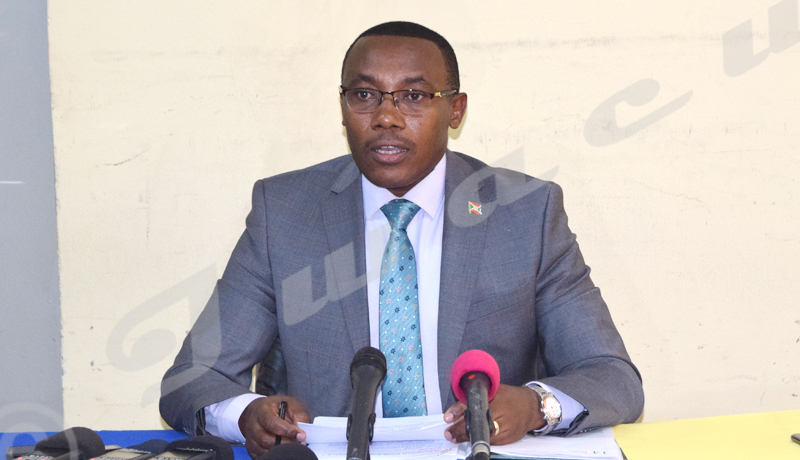In a press conference held on June 14th, the Minister of Health has said malaria patients increased in number in the northern and eastern provinces of the country.

Thaddée Ndikumana: “More than six million mosquito nets will be distributed to all households early in 2020”
“We realized that malaria increased especially in the northern and eastern provinces,” says Thaddée Ndikumana, Minister of Health.
He says there are various causes of malaria escalation such as climate change, fish breeding and rice farms which facilitate the existence and incubation of mosquitos in many places. “We could actually pump insecticides throughout the country but mosquitos may migrate from neighboring countries,” says Minister of Health.
Apart from the known health centers, Mr. Ndikumana says the Ministry of Health made available mobile clinics. “The Ministry of Health has made available more than 360 medical staff units to work in rural places where people do not have quick access to medical centers,” says the Minister of Health. They will help to detect and treat malaria patients, he adds.
Consequently, the Ministry realized that malaria cases has increased over the past few days. “Over 282,000 cases of malaria were recorded last week,” says Mr. Ndikumana. Thanks to the decisions taken by the Ministry, the number of patients decreased to 198,163.
The Minister of Health calls on the population to regularly use mosquito nets so that the number of malaria victims decrease.
“More than six million mosquito nets will be distributed to all households early in 2020,” says Mr. Ndikumana.
He recommends the creation of malaria clubs in schools so that students can learn how to fight malaria. “I urge the administration to fight traders who buy mosquito nets given to people to prevent malaria,” says the Minister of Health.
Mr. Ndikumana warns people against using mosquito nets in other activities such as fishing, farming, etc. “People should learn how to cope with climate change,” he says.
Malaria is a life-threatening disease. It’s typically transmitted to humans through the bite of an infected anopheles mosquito. Infected mosquitos carry the plasmodium parasite. When this mosquito bites a person, the parasite is released into one’s bloodstream.
The development of planting in marshlands in which vector mosquitos proliferate may be the cause of the increase of malaria in many areas.



















 IWACU Open Data
IWACU Open Data

